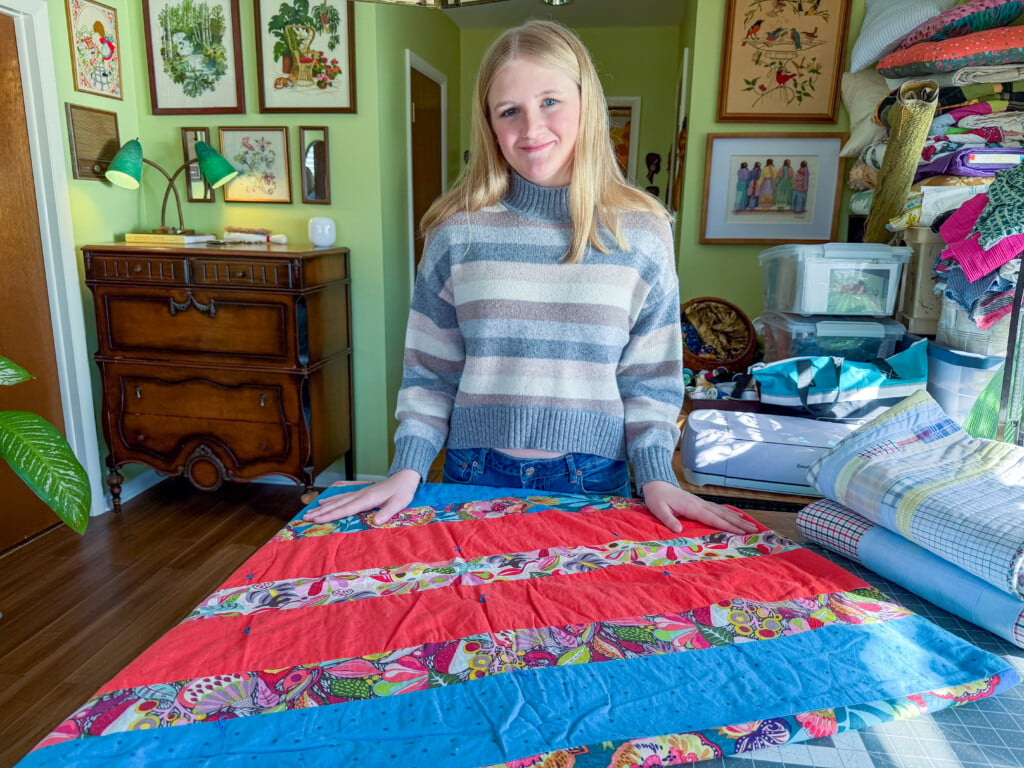Tackling Winter Skin Problems
Sponsored by Saint Francis Children's Hospital
Emily Williams, MD, with Warren Clinic and Saint Francis Children’s Physicians Dermatology, answers questions about common winter skin problems.
Q: What are some common skin issues that children experience in the winter months, and what causes them?
Dr. Williams: We see a lot more dry skin in the winter months, especially here in Oklahoma where it is less humid during the winter, and we don’t have as much moisture helping our skin stay nice and smooth. This may affect kids with eczema a little more, but we do see this in all kids, especially in January and February, when we use heaters more often and warmer water for bathing.
Q: You mentioned eczema. Can you tell us what that is?
Dr. Williams: Eczema is a skin condition that can affect anyone, but it can affect kids more often than adults. It is where kids have a little bit more sensitivity in their skin, and they have some itching that correlates with dryness. It tends to affect areas of skin folds, like at the elbows and behind the knees. Some kids may outgrow it, so we see it more commonly in the toddler to early preschool ages.
Q: What do the dry skin conditions look like, and what are the symptoms?
Dr. Williams: Parents may notice that their kids are scratching, sometimes before a rash appears. When kids scratch, you can see some redness, maybe flaking, cracking or scaling, and sometimes even a little bit of skin breakdown where they’ve scratched more. Kids may not be able to tell you that they’re itchy, but just seeing them scratching is a telltale sign.
Q: What can parents do to avoid or minimize these winter skin issues?
Dr. Williams: The core of the best practices for winter skin care also apply year-round. As we’re using heaters more frequently, be vigilant about keeping moisturizers on the skin. I typically recommend products that at least say moisturizing cream. The best thing is an ointment, but make sure that it’s at least a cream. Lotions are thinner, and they don’t give you the durable moisturization of creams and ointments. Creams and ointments typically come in a tub versus something that you can pump from a bottle.
The most important time to apply it is after bathing, when skin is the softest, so it will soak in better. Use lukewarm rather than hot water for baths or showers and avoid prolonged water exposure because it can be dehydrating to the skin. Only apply soap where kids are visibly dirty, especially in wintertime when they may not be playing outside as much. When applying soaps, focus on skin folds and the private areas. Use soaps that have minimal fragrances or other ingredients added to them. Keep skincare as plain as possible so that you’re not adding things that may compound irritation.
Q: If children do develop skin conditions or have itchiness, what kinds of treatment are available?
Dr. Williams: At home, make sure your child’s skin is well moisturized because dry skin is itchy skin. If their skin is already itchy and dry, stay on top of the moisturizing.
If you feel like you’ve optimized what you can do at home or if the itching is affecting sleep or naptime, if you see a skin rash, or if it the problem seems abnormal, call either your child’s pediatrician or call us at the dermatology clinic. We can check the problem and possibly offer different treatments. Sometimes an anti-inflammatory medicine on the skin, whether it’s a topical steroid or another form of medication, can help calm the skin’s reaction.
Q: Any time we’re concerned about too much itching, or if it gets in the way of sleep or normal daily behavior, then probably it’s time to call the doctor.
Dr. Williams: Yes. Also, if there’s ever any kind of yellow crusting or anything overlying any of their itchy spots, those are reasons to come see us. But I always tell patients, any parental concern is good enough for me. This is a partnership where we want to make sure that we’re addressing all concerns.
Q: So, any concerns that we have as a parent, we should call the child’s pediatrician or healthcare professional.
Dr. Williams: Absolutely. It’s a world of a lot of information, and while that can be helpful, sometimes it can be really confusing for parents to sift through what they need to do or what they need to know. And that’s where we come in, just to step along and partner with you.




